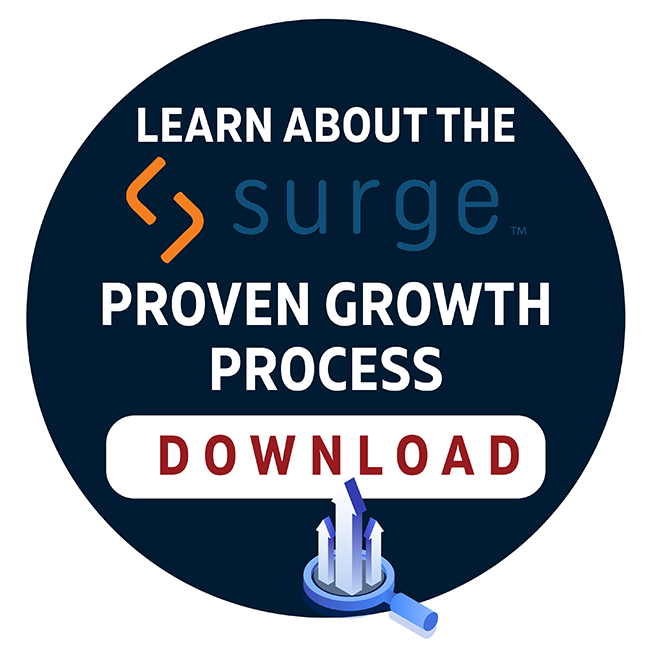Updated April 13, 2023, at 9:05 AM
It’s no secret that the financial services industry is quickly evolving and with that, growth business strategies take center stage in a highly competitive environment.
And with only so much time in a day, it can be challenging for financial advisors to find business growth strategies that propel their business forward.
Consider using these business growth strategies to boost efficiencies, deliver a better client experience, and take charge of your business’s future.
#1. Conduct a Detailed Book of Business Analysis
Start where it all begins: with your clients.
Start by compiling thorough information on your client base and your service offerings. Doing so will help give you a clear picture of where you’re most profitable while also bringing your paint points to light.
To help your book of business be stronger and more efficient, consider some of these important questions as you go through this exercise:
- What client type should I be focusing on?
- Which clients align best with my planning philosophy?
- How many relationships or centers of influence can I have while still delivering an excellent client experience?
- What should the plan be for clients that aren’t a great match for my business?
#2. Consider Carving Out a Niche
One of the best financial advisor growth strategies is to differentiate yourself from the long list of competition. Many financial advisory firms provide a broad swath of services to connect with the largest possible market, but you may not delivering the best possible service this way.
But by becoming an expert in a niche market—such as medical doctors or the tech community—you can hone your skills (and branding) to match what matters most to that particular audience. When you focus on a smaller niche, you can more face less competition, create better client loyalty, and increase referral rates.
#3. Establish Centers of Influence Relationships
Building strong partnerships with centers of influence (COIs) can help accelerate business growth. With a stronger service offering and a chance at more referrals, partnering with COIs such as attorneys, CPAs, or trust officers can complement your business and solve more client issues.
An easy way to see if partnering with COIs makes sense is by simply doing the math. If you’re unable to provide a service or you find the time and resources you put into an activity isn’t getting you a high return, it may be a good idea to find a partner.
Doing some simple calculations can help you make more informed decisions about the tasks you can outsource to your COIs. Not only will it free up more time for you, but it will also simplify your business so you can focus on more productive and profitable activities that can grow your business.
Related: Client Segmentation Guide for Wealth Management Firms [Tips to Get Started]
#4. Develop Consistent Engagement Strategies
Even though each person is unique doesn’t mean you can’t have the same approach when interacting with each one. If you can standardize your processes and how you engage with your book of business, you can consistently build better relationships. For example:
- Prospect Engagement Strategy: A systematic approach of how often you communicate with prospects, conduct meetings, and follow-up post-meeting reflects your attention to detail and shows people that you care. The goal here is to make a positive impression every time.
- Onboarding Engagement Strategy: Once you have a new client, set the tone for a longstanding and mutually rewarding experience. You can avoid overlooking key details when you develop a step-by-step approach that’s easily repeatable. It’s important to cover each step every time to deliver a strong advisor-client relationship.
- Client Engagement Strategy: Establish a system that’s easy to follow where you can set reminders and track significant client events or milestones to create a personalized client experience. By recognizing important milestones, you can show you’re always thinking of them and continuously surprise and delight the people most important to your business.
#5. Develop Your Firm’s Branding & Engaging Content
Plenty of financial advisors don’t give their marketing and branding the attention it deserves. The strategies you set forth puts a critical emphasis on what you want prospects and clients to know about your practice and the value you can offer.
In today’s landscape where people first learn from your website, personal LinkedIn, company social media, and other digital outlets, it’s important to consistently convey the right message to make people more confident in your firm. Lead capture opportunities across your digital presence is also important to secure new leads. In the long run, you’ll create a loyal audience and strong brand awareness and recognition.
Using content marketing to share valuable insights and answers through blog articles, PDF guides, videos, and infographics can fuel new conversations with your audience and establish yourself as the go-to resource for financial questions.
You can also optimize your digital channels to have plenty of lead capture opportunities. For example, a great way to draw in new contacts is requiring a form submission be filled out to access your latest PDF guide or to book a discovery meeting. People are willing to exchange their information to find the answers they’re looking for.
But you don’t need to start from scratch, though. You can partner with a proven financial marketing team that can help with the heavy lifting required for content and digital marketing strategies. There are also plenty of tools and templates out there that can help ramp up your marketing efforts to effectively reach your target audience. It’s not easy work, but the value you provide in your content marketing can steadily help your business grow.
Related: Building Your Brand: Content Promotion Tips for Financial Advisors
#6. Automate Your Processes
Another business growth strategy is to automate your internal processes, planning, and communications the best you can. Once you have new client opportunities rolling in, it’ll help your business run like a machine and streamline your efficiencies.
Using cloud-based and other technology solutions to systematize day-to-day tasks can create smooth procedures and allow you to focus on producing outstanding hands-on client service.
#7. Lay the Foundation for Succession Planning
If retirement is on your horizon, laying the foundation of succession planning is critical to make the transfer of ownership as successful and profitable as possible when the time comes.
Put in the effort to clean up and systemize your business. It all starts with taking an honest view at how easy (or difficult) it would be for someone new to take on your business without having years of familiarity with it.
Examine your business for its strengths, weaknesses, and pain points. For example, do you have a robust CRM you use? Is there financial planning software that makes the job easier? What about internal processes—are they automated or still carried out manually?
Once you have a clear understanding of your business’s health, you can then identify opportunities for improvement. Whether it be implementing new systems and processes or leveraging turnkey solutions, a “Successful Succession” begins and ends with you.
A Trusted Succession Planning Partner
Next Continuity and Succession Planning can help you throughout the entire process—from firm enrichment all the way to the exit plan. Since succession planning involves multiple parties, team members, and partners, there are many stages needed to fill succession requirements and overcome roadblocks. Next’s Successful Succession 12-Step Process can create the ideal plan through coaching, delivery, and personal guidance to accompany you on the succession planning journey.
#8. Consider Utilizing a Business Consultant
If growing your advisory business by yourself seems like a difficult task, you’re not alone. Thousands of financial advisors rely on consultants to maximize their business growth.
Business consultants can offer expert-based “how-to guides” to run your firm better and provide opportunities for you to learn how to be more effective in your business. They can diagnose problems and know specific tools and resources needed to solve those issues.
If you want to grow your business through subject-matter expertise and find a trusted partner to provide tools and strategies to solve your biggest paint points, a consultant’s support can be invaluable.
Discover the Surge 20.20 Business Growth Process
Surge Business Consulting is a proven way for financial advisors to improve their business and grow both personally and professionally. Surge expert consultants can provide valuable business-building advice and resources through the proprietary 20.20 Process that delivers proven business results to its members.
Through an in-depth discovery process, Surge works with you to offer optimal recommendations that help you break through any resistance you may be having and perfect the company you’ve proudly built.
For Financial Professional Use Only – Not for Customer Use




